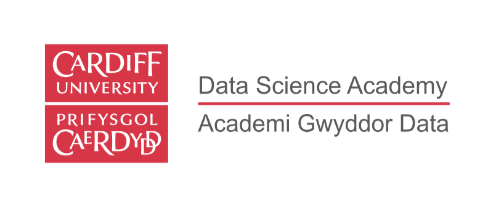
Industry Exchange Network - Cymru (IXN-Cymru)
Respiratory Innovation Wales in conjunction with Cardiff University’s School of Computer Science and Informatics supported the 2021-22 Industry Exchange Network Cymru (IXN Cymru).
As part of a wider National Framework for IXNs incepted in 2011 by UCL Computer Science in 2011, students can have the opportunity to access the latest technologies from major organisations such as Microsoft, IBM, NTT DATA, Intel, Facebook and Amazon as part of a pilot in Wales. Alongside these technology giants, we partner with public sector, the next-big-thing SMEs and the most creative companies to help the NHS and other public sector partners transform digital and bring technical advances to charities.

IXN Cymru aims to help prepare our postgraduate students for their careers by building upon the unique Industry Exchange Network pedagogical approach, established by Prof Dean Mohamedally and Prof Graham Roberts from UCL, has been endorsed as best practice by the UK Government*. Our postgraduate students will work with our partners to devise proofs of concept to solve real-life problems while also undertaking their dissertation project. At the same time, this is an opportunity for students to learn vital business skills.
For IXN Cymru partners, the programme allows them to innovate with low risk. Creating proof of concepts and prototypes with the students, they explore ideas quickly with minimal costs and disruption to their business.
Frequently Asked Questions
This is a project-based educational methodology enabling students to work on real-world problems as assessed core components of their degree programmes.
The IXN Cymru builds upon the IXN methodology developed by UCL Computer Science. There are over 800 UCL Computer Science students per year from undergraduate through to MSc level, taking into account the students’ motivations and special interests. The School of Computer Sciences and Informatics at Cardiff University has an additional 700 number of students at MSc level. A team of staff and external collaborators has been built up to support the teaching, lab work, assessment, administration, financial operations, events and public relations.
Cardiff University’s Data Science Academy (DSA) has been established to ensure that Wales produces highly-skilled and employable graduates in some of the fastest growing and in-demand areas, from Data Science and Artificial Intelligence to Cybersecurity. It is operated by the School of Computer Science and Informatics in collaboration with other academic schools including the School of Mathematics, Cardiff Business School and the School of Journalism, Media and Culture. The DSA offers a core suite of Masters programmes including: MSc in Artificial Intelligence, MSc in Cybersecurity and MSc in Data Science and Analytics.
There are a range of opportunities for organisations to engage with the DSA. First and foremost is the provision and supervision of “real life” projects for the students to work on during their summer dissertation. (Students are not being, or expected to be paid for this work).
Further information on the summer dissertation projects can be found in the FAQ: What are the requirements for a suitable summer dissertation project?
Other ways that organisations can engage with the DSA is outlined below:
- Providing guest input/sessions into particular modules reflecting your areas of expertise.
- Providing short “lunch and learn” sessions on topics of interest (not necessarily linked to the curriculum).
- Providing scenarios for case study days where teams of students can work together to solve a problem.
- Sponsoring a prize or some other aspect of the Academy e.g. equipment.
- Assisting with marketing and publicity for the Academy.
- Providing assistance with curriculum development – helping shape the degrees for future years.
- Providing industry visits for students to come and see your company live in action.
- Work with us to identify talent that would likely suit your company after graduation.
- Create internships and placement opportunities by working with us to ensure the right candidate makes a contribution while gaining valuable work experience.
Please contact DSA@Cardiff.ac.uk for further information.
MSc Artificial Intelligence
We are looking for projects around building autonomous systems that can encompass know-how (e.g. description logic, planning, propositional logic) as well as can learn from data (decision tree, SVM, probabilistic logic programming, Bayesian networks, Markov networks, neural networks), and critically evaluate them in the context of business requirements, adherence to best practices and advancement of the state-of-the-art.
MSc Computational and Data Journalism
Our students are interested in projects of two kinds. The first is long-form journalistic writing which combines computational analysis with testimony gathered from people. The second envisages and then builds technology that will help journalists or newsrooms use data analysis or computational techniques to produce journalism. Some projects mix both categories and produce original journalism together with new applications of technology. Students have also in the past spent time in industry on data journalism topics that were specific to a particular company or media.
MSc Cybersecurity
We are looking for projects around building secure systems and securing systems (e.g. IoT, Cloud), dealing with attacks (e.g. remediation, forensics), detecting attacks and evaluation of security in practice (e.g. effectiveness and efficiency of SIEMs, choice of appropriate security policies, etc.).
MSc Data Science and Analytics
We are interested in projects covering a wide spectrum of data science and analytics. Any project belonging (or being close enough) to one of the following three categories can be submitted:
a. the use of efficient algorithms to fetch data from online sources or live databases;
b. the use of data mining and machine learning methods to answer a specific research question on an already existing dataset;
c. the use of business analytics and/or techniques to optimise the performance of a process.
We are looking for challenging research questions to enable our students to apply methods and algorithms beyond the classic ones they learn in class.
There are a number of requirements for a suitable summer dissertation project:
- Projects need to be pitched at the right academic level for the students and to allow students to meet the academic aims of the dissertation module. The Academy’s academic team can discuss this with you. The academic team can also advise as to which degree your project might be most suitable for.
- Projects will be around 10-12 weeks in length and will run roughly from late June/July to September/October.
- Projects may involve more than one student, but the work each student undertakes will be individual rather than team based.
- Given the above, it is important to be realistic about what the students can produce in the time available to them. It should be noted that the learning opportunity presented by the project for the student is the key output.
- During the dissertation project phase, students may be based within sponsoring organisations, at the University or a combination of both. This can be discussed with the academic team.
- Each student should be provided with a mentor or supervisor within the sponsoring organisation. The University will also provide an academic supervisor. Regular meetings are expected throughout the project duration.
- In terms of data analysis, it is important that data is available at the start of the project to ensure there is sufficient time for the student to mine, clean and analyse the data before writing up the report (dissertation).
- Although we may not be able to take on every project proposed, we will select projects based on best fit with the learning
outcomes required. If we are not in a position to undertake a project during this year then there is always the possibility of
returning to it in future academic years and there are a number of other ways (see previous page) that organisations can still be involved.
We invite you to submit project proposals, which we will go through our checking process in order to identify students whose interests match the project area. A project proposal should identify a task with clear requirements and goals, in a specific technology area (e.g., machine learning, mobile app, or IoT) suitable for a specific student cohort.
If you would like to submit a project proposal for the next academic cycle? Please the form provided: [link to MS form]
The University’s main requirement is that the students can use the collateral produced to showcase their ability to academic staff as part of the assessment for their degree. For summer dissertation projects where there may be any commercial sensitivity, project sponsors may have the opportunity to edit any artefacts before release or to place a bar on access for a short period of time after the project has finished. The University has a standard contract which covers Intellectual Property (IP) and confidentiality and this can be used where there may be a need to protect commercial interests. Talk to us if you have any IP requirements before submitting the project.
The deadline for Masters level project proposals at Cardiff University for 2021-22 was end of February 2022.
We are keen that the students work on real-world problems defined by our industry and public sector partners. Our IXN Cymru programme leads work with you to match your specifications with our syllabus and assessment criteria. If you would like assistance aligning your project proposals with our scheme then please contact RIW addy who will put you in touch with the appropriate staff.
Information on programmes that are provided by the Data Science Academy can be found at:
Study – Data Science Academy – Cardiff University
Information on all the MSc Programmes at the School of Computer Science and Informatics, Cardiff University can be found at:
Postgraduate taught – School of Computer Science and Information – Cardiff University
IXN Cymru Project Proposal is now closed
If you have submitted a project proposal. we will contact you shortly.
Thank You

